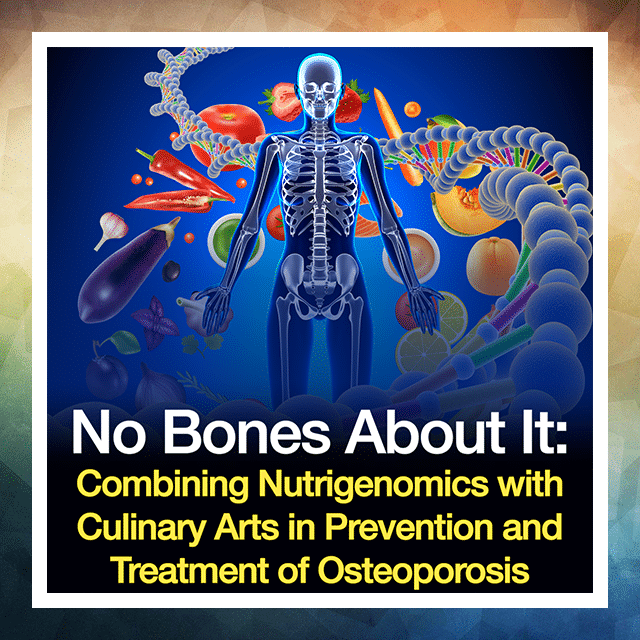Price:
Access to webinar recordings with Slides included.
*** Non-CPE Session ***
* Your receipt will contain your access information. You will need to be logged into your account to view the recording.
$34.00
Each year 10 million post-menopausal American women are diagnosed with osteoporosis. Half of all post-menopausal women have an osteoporosis-related bone fracture during their lives. With millions of baby-boomer women going through peri-menopausal or post-menopausal transition, those statistics are expected to increase significantly. To preempt this bone loss, most are encouraged to consume a diet rich in micro-nutrients and exercise regularly. Dietary supplement recommendations, if given, focus primarily on Calcium and Vitamin D and some post-menopausal women are prescribed hormone replacement.
Has this been enough? Considering 70% of the variability in bone mass in humans is associated with multiple genes across different biological systems, it’s time that recommendations become more specific and better matched to each individual.
This presentation highlights how genotype impacts risk for osteopenia/osteoporosis by identifying polygenic single nucleotide polymorphisms (SNPs) associated with reduced bone mass, detailing how nutrigenomic and culinary interventions can mitigate their effects, and how assessing specific biomarkers can lead to better health outcomes for this at-risk population.
A case history will demonstrate the value-added using genomic SNP identification and bio-marker indices leading to personalized dietary, supplement, and lifestyle recommendations, including a detailed explanation of specific culinary considerations related to nutrigenomics, and include a road-map, translating nutrient intervention into actionable recipes and meal concepts.
In this webinar we will:
- Describe the function of genes involved in bone formation/degradation and explain how gene SNPs associated with osteogenesis impact biochemical and metabolic pathways leading to a loss of bone mass.
- Recognize how gene variants in bone formation and bone degradation, nutrient utilization, inflammation and exercise can alter bone mass and lead to osteopenia or osteoporosis.
- Utilize genomic testing to recommend and bio-markers to evaluate the efficacy of personalized, evidenced-based nutrigenomic interventions in the prevention or treatment of osteopenia or osteoporosis
- Build individualized culinary solutions using genomic information, nutrigenomics and relevant biochemistry
- Describe culinary preparation considerations that may influence or impact gene expression

